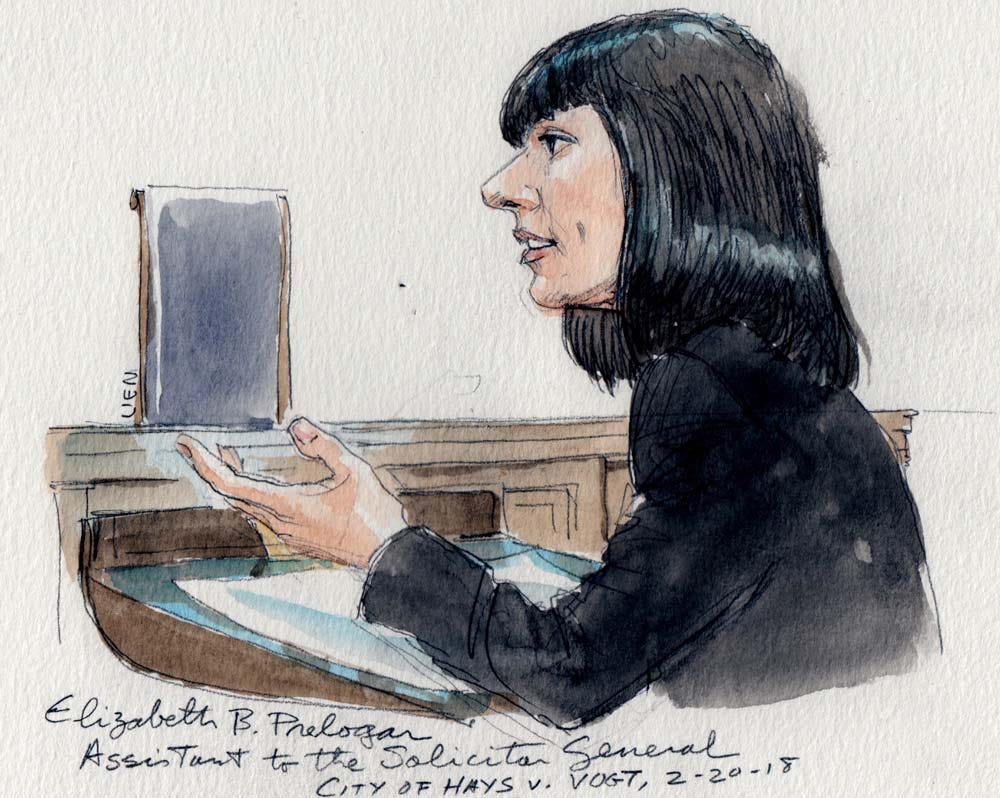Last Week in Federal Appeals (No. 21)
Appellate decisions from the week of October 25-29, 2021
In [that considering whether to grant extraordinary relief via the shadow docket involves] a discretionary judgment about whether the Court should grant review in the case. Were the standard otherwise, applicants could use the emergency docket to force the Court to give a merits preview in cases that it would be unlikely to take—and to do so on a short fuse without benefit of full briefing and oral argument. In my view, this discretionary consideration counsels against a grant of extraordinary relief in this case, which is the first to address the questions presented.
~ Justice Barrett, John Does 1-3 v. Mills (concurring in the denial of injunctive relief)
Decision Summaries:
First Circuit
Reid v. Donelan
A number of noncitizen detainees brought a class action suit alleging that the Department of Homeland Security violated their constitutional rights by holding them without the possibility of release while their removal proceedings are pending. The First Circuit held that there is no per se constitutional right to a bond hearing after six months of such detention.
Flores-Rivera v. United States
While trying three co-defendants for drug-trafficking offenses, the government withheld evidence in violation of its Brady obligations. On that basis, two defendants successfully challenged their convictions; but one defendant’s lawyer failed to make a Brady argument on appeal. The First Circuit reversed the district court’s denial of the third defendant’s habeas motion, holding that she had demonstrated her appellate counsel was ineffective and had suffered prejudice.
Seventh Circuit
Wilber v. Hepp
The Seventh Circuit affirmed a district court order granting a writ of habeas corpus. The petitioner was shackled during critical stages of his State murder trial in Wisconsin, during which the State prosecutor suggested he was “wild,” “crazy,” “possessed,” and “out of control.” The panel agreed with the district court that this was sufficient to show prejudice because the restraints “suggested to the jury that the court itself perceived Wilber to be incapable of self-control.”
Ninth Circuit
Cohen v. ConAgra Brands, Inc.
The Ninth Circuit revived a lawsuit against ConAgra alleging that it falsely advertised its frozen chicken products as natural and preservative-free when, in fact, they contain synthetic ingredients. Although the chicken’s label was approved by the Department of Agriculture, pre-empting any challenge to its text, ConAgra’s website was not and could be a basis for plaintiffs’ lawsuit.
Eleventh Circuit
Autauga County Emergency Management Communication District v. FCC
The Eleventh Circuit agreed with the FCC that local 911 Districts cannot use different units when calculating charges for VoIP phone service providers than they use when calculating charges for traditional phone service providers, if the differing units results in higher charges to VoIP providers for the same burden on the 911 system.
In The News:
The U.S. Supreme Court rejected a religious challenge to a vaccine mandate in Maine that requires healthcare workers to be vaccinated. Justices Kavanaugh and Barrett, perhaps in response to recent criticism of the Court’s “shadow docket” decisions related to COVID-19, argued that the emergency docket is not the correct avenue for considering the healthcare workers’ religious liberty claims. Justices Thomas, Alito, and Gorsuch dissented.
The U.S. Supreme Court also agreed to review a series of cases related to the EPA’s ability to regulate greenhouse gasses, the resolution of which may stymie the Biden administration’s regulatory efforts to combat climate change.
The U.S. Senate, with only six dissenting votes, confirmed Elizabeth Prelogar to serve as the Solicitor General of the United States. Prelogar is only the second woman in U.S. history to hold the office, the first being now-Justice Elena Kagan.
The Attorneys General of Tennessee and 20 other States sent a letter to President Biden protesting the federal government’s mandatory vaccine requirement for federal contractors, claiming it is unworkable.
State Decisions of Interest:
The California Supreme Court declined to hear Brad Pitt’s appeal from a lower-court ruling disqualifying the judge presiding over his custody battle with Angelina Jolie.
The Indiana Supreme Court issued an order requiring judges in eviction cases to inform the landlord and tenant involved of pre-eviction resources, including emergency rental assistance, legal assistance, and the State’s free landlord-tenant settlement program.
The Oklahoma Supreme Court blocked three anti-abortion laws that would have (1) required doctors performing abortion be board-certified in obstetrics and gynecology and (2) created new restrictions on medication-induced abortions.
The South Carolina Supreme Court ruled that Duke Energy could not pass on environmental compliance, litigation, and carrying costs to consumers.
Any opinions expressed here are my own. This article is not legal advice; if you have a legal issue, you should consult an attorney.
If you liked this article or have thoughts about it, please like or comment below (or email me at breese@flannerygeorgalis.com) and consider sharing it with your friends and network.




